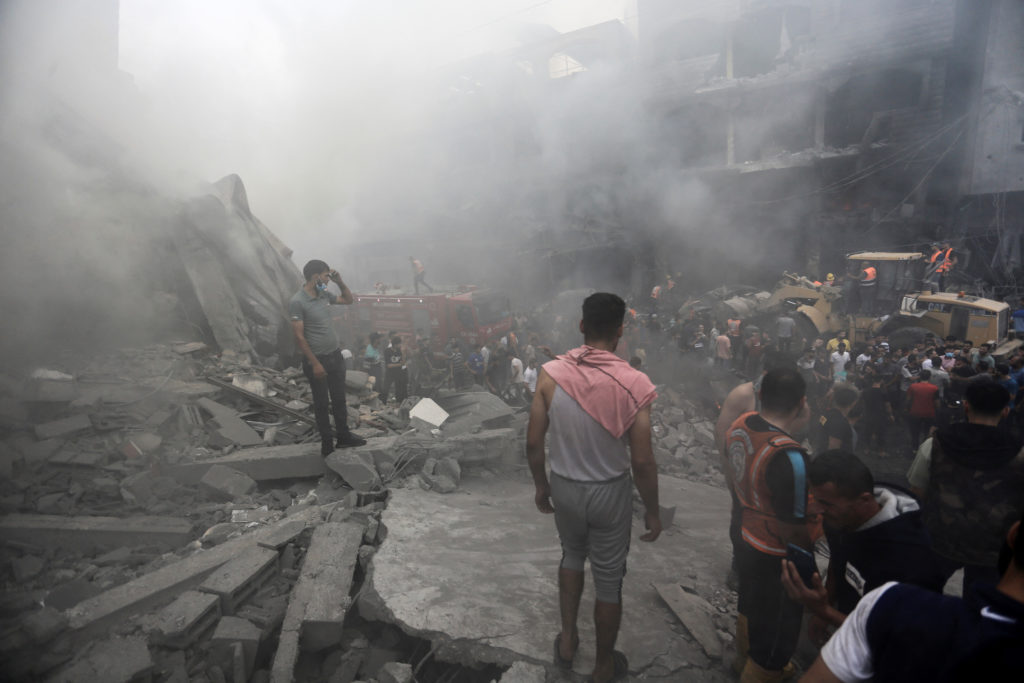In a devastating turn of events, Al-Baqa Cafe, a beloved beachfront establishment in Gaza, was struck by Israeli airstrikes on June 30, resulting in the deaths of 32 individuals. Among the casualties were civilians enjoying life amid ongoing conflict, including a journalist, an artist, and two young women reconciling after a quarrel. Mohammed Abu Shamala, an aid worker present during the blast, recounted a harrowing experience of survival amid chaos, with dust and debris obscuring the sea view.
The Israeli military claims that the airstrike targeted Hamas operatives, alleging connections to militant activities; however, no evidence has been presented to substantiate these claims. The indiscriminate nature of the attack has raised serious concerns, with Gaza health officials reporting that the overall death toll exceeds 60,000 since the outbreak of violence, further complicated by a growing crisis of starvation and malnutrition among the population.
Located ideally for both relaxation and reliable internet, Al-Baqa Cafe had regained popularity following a temporary ceasefire earlier in the year. It provided not only a gathering place but also a semblance of normalcy amidst the routine destruction faced by Gazans. Yaqoub Al-Baqa, the cafe's manager, described the horror of the aftermath, shifting from serving customers to dealing with the grim reality of human remains.
The cafe’s patrons included journalists seeking refuge from the turmoil, families celebrating milestones, and friends coming together to reconnect. The loss of vibrant lives—such as the celebrated photographer Ismail Abu Hatab and artist Frans al-Salmi—reflects the tragic impact of the strike. Survivors like Ola Abed Rabou are left to grapple with grief, mourning loved ones lost while facing their own injured bodies.
As the community copes with the aftermath of the tragedy, Al-Baqa's future remains uncertain. Despite the devastation, there are plans to reopen the cafe; tighter security measures will be introduced to protect patrons. For many, spaces that once offered comfort and connection have transformed into painful reminders of conflict. Survivors like Mr. Abu Shamala are left questioning whether they can return to a place that has become a symbol of loss and fear.
With ongoing violence and deteriorating humanitarian conditions in Gaza, the repercussions of the recent attack on Al-Baqa Cafe continue to resonate throughout the community, underscoring the deepening tragedy faced by civilians caught in the crossfire.
The Israeli military claims that the airstrike targeted Hamas operatives, alleging connections to militant activities; however, no evidence has been presented to substantiate these claims. The indiscriminate nature of the attack has raised serious concerns, with Gaza health officials reporting that the overall death toll exceeds 60,000 since the outbreak of violence, further complicated by a growing crisis of starvation and malnutrition among the population.
Located ideally for both relaxation and reliable internet, Al-Baqa Cafe had regained popularity following a temporary ceasefire earlier in the year. It provided not only a gathering place but also a semblance of normalcy amidst the routine destruction faced by Gazans. Yaqoub Al-Baqa, the cafe's manager, described the horror of the aftermath, shifting from serving customers to dealing with the grim reality of human remains.
The cafe’s patrons included journalists seeking refuge from the turmoil, families celebrating milestones, and friends coming together to reconnect. The loss of vibrant lives—such as the celebrated photographer Ismail Abu Hatab and artist Frans al-Salmi—reflects the tragic impact of the strike. Survivors like Ola Abed Rabou are left to grapple with grief, mourning loved ones lost while facing their own injured bodies.
As the community copes with the aftermath of the tragedy, Al-Baqa's future remains uncertain. Despite the devastation, there are plans to reopen the cafe; tighter security measures will be introduced to protect patrons. For many, spaces that once offered comfort and connection have transformed into painful reminders of conflict. Survivors like Mr. Abu Shamala are left questioning whether they can return to a place that has become a symbol of loss and fear.
With ongoing violence and deteriorating humanitarian conditions in Gaza, the repercussions of the recent attack on Al-Baqa Cafe continue to resonate throughout the community, underscoring the deepening tragedy faced by civilians caught in the crossfire.

















